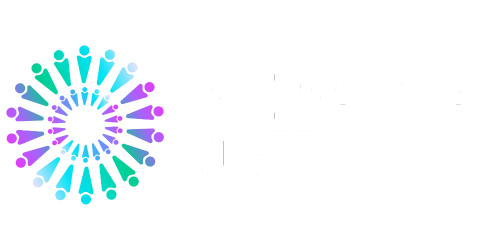The State of the Nation: Insights from International Confex 2024
)
At the recent International Confex, industry leaders gathered for the highly anticipated "State of the Nation" session on the Power of Events Theatre, offering a wealth of insights into the current and future landscape of the events industry from varying sectors and perspectives. The panel comprised:
- Michael Geitzen, Identity
- Laura Sidhu, Live Recruitment
- Rick Stainton, The Power of Events
- Julie Shorrock, Hotel and Travel Solutions
- Nadu Placca, Association of Black Event Professionals
Key Challenges and Trends
Recruitment and Talent Shortages
One of the primary topics discussed was the significant challenge of recruitment and talent shortages within the industry. Laura Sidhu emphasised the importance of looking outside traditional event sectors to find individuals with transferable skills, such as those from marketing or digital backgrounds, who can bring fresh perspectives and innovative ideas to event planning and execution.
Michael Geitzen highlighted the need for agencies to attract and nurture a new generation of talent, stressing the importance of showcasing the diverse range of careers within the events sector to young people who may not have considered events as a future career. Julie Shorrock echoed this sentiment, emphasising the need to make the industry appealing to new talent by promoting the dynamic and exciting nature of events.
Client Demands and Lead Times
The panellists addressed the increasing demands from clients for more sophisticated and engaging event experiences. Michael Geitzen pointed out that lead times have shortened, requiring agencies to be more agile and responsive. He also noted that content is becoming a critical driver in client decision-making, necessitating a stronger focus on storytelling and technological innovation to deliver impactful experiences. Corporate events in 2024 need to offer a more immersive and sensory experience to delegates to keep up with expectations and ensure attendee loyalty for future events, there has been an increase in formalised icebreakers, rented games for events and more hosted buyer experiences at events within the industry across the past 12 months.
Sustainability and Inclusivity
Rick Stainton highlighted the growing importance of sustainability and inclusivity in event planning, with Confex now dedicating an entire theatre to dedicated sustainability content. He stressed that events need to cater to a diverse audience by ensuring accessibility and creating environments where all attendees feel welcome. This includes considering the needs of neurodivergent individuals and those with physical disabilities, as well as promoting diversity within event teams. There is a huge capacity to cater to delegates and make them feel like their needs are considered and listened to.
The Future of Events: Personalisation and Technology
Personalisation
Personalisation emerged as a key trend for the future, with panellists agreeing that attendees now expect more tailored and meaningful experiences. Michael Geitzen shared insights into how AI-powered matchmaking and customised content can enhance attendee engagement and satisfaction. Rick Stainton added that understanding and responding to the specific needs and preferences of attendees will be crucial for the success of future events.
Technological Advancements
The panel also discussed the impact of technological advancements on the industry. Laura Sidhu noted that new digital tools and platforms are enabling more effective and efficient event management allowing organisers to save time and resources throughout the event cycle. From AI-driven networking solutions to immersive VR experiences, technology is set to transform how events are planned and executed.
Wellness and Work-Life Balance
The session concluded with a discussion on wellness and work-life balance, both for event professionals and attendees. Julie Shorrock emphasised the importance of promoting a healthy work environment and offering flexible working arrangements to retain top talent. She also highlighted the need for events to include wellness features, such as quiet zones and relaxation areas, to support the well-being of attendees.
With a focus on addressing talent shortages, meeting client demands, promoting sustainability, and leveraging technology, industry leaders are well-positioned to navigate the challenges and opportunities that lie ahead. By prioritising personalisation, inclusivity, and wellness, the events sector can continue to thrive and deliver exceptional experiences for all.
